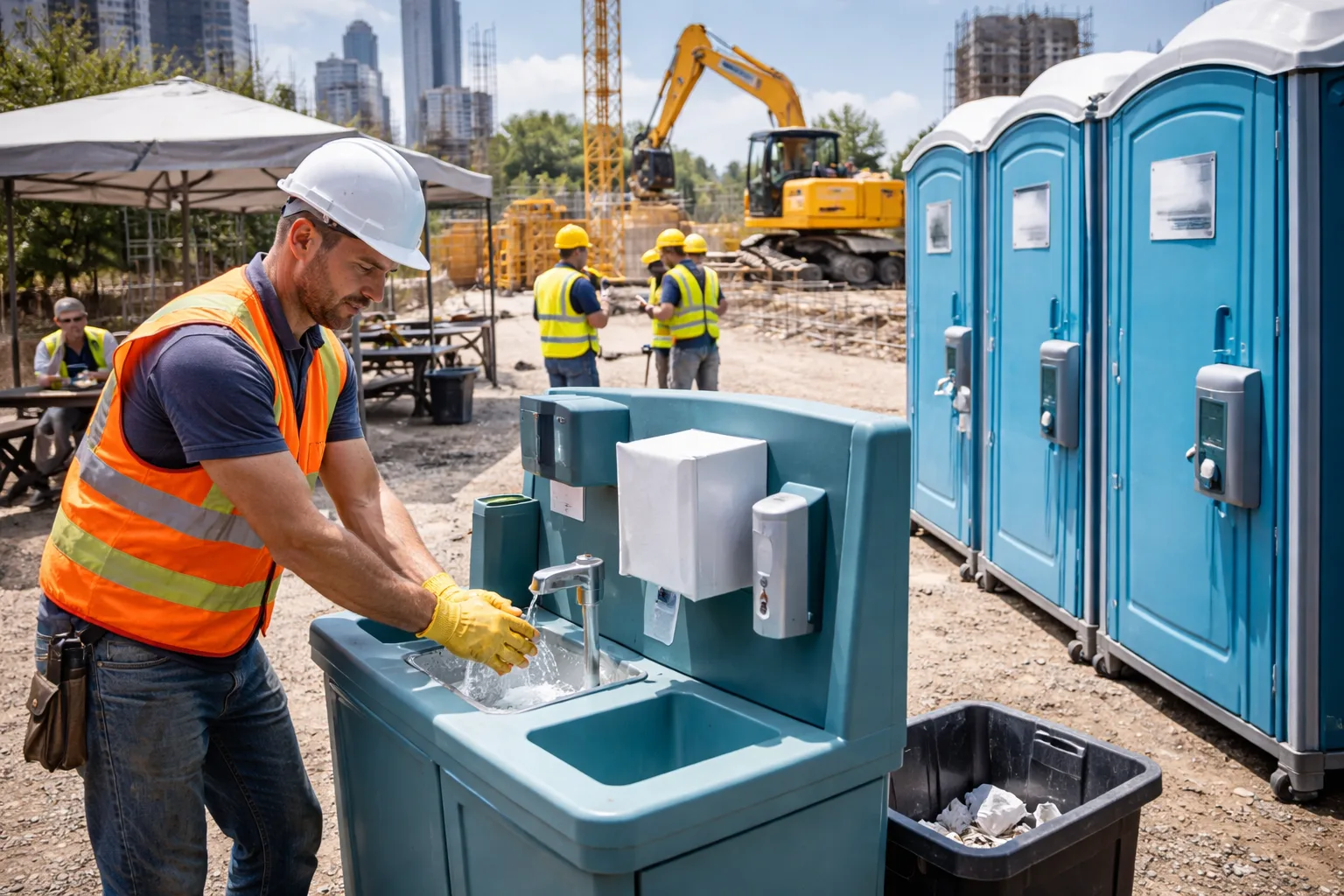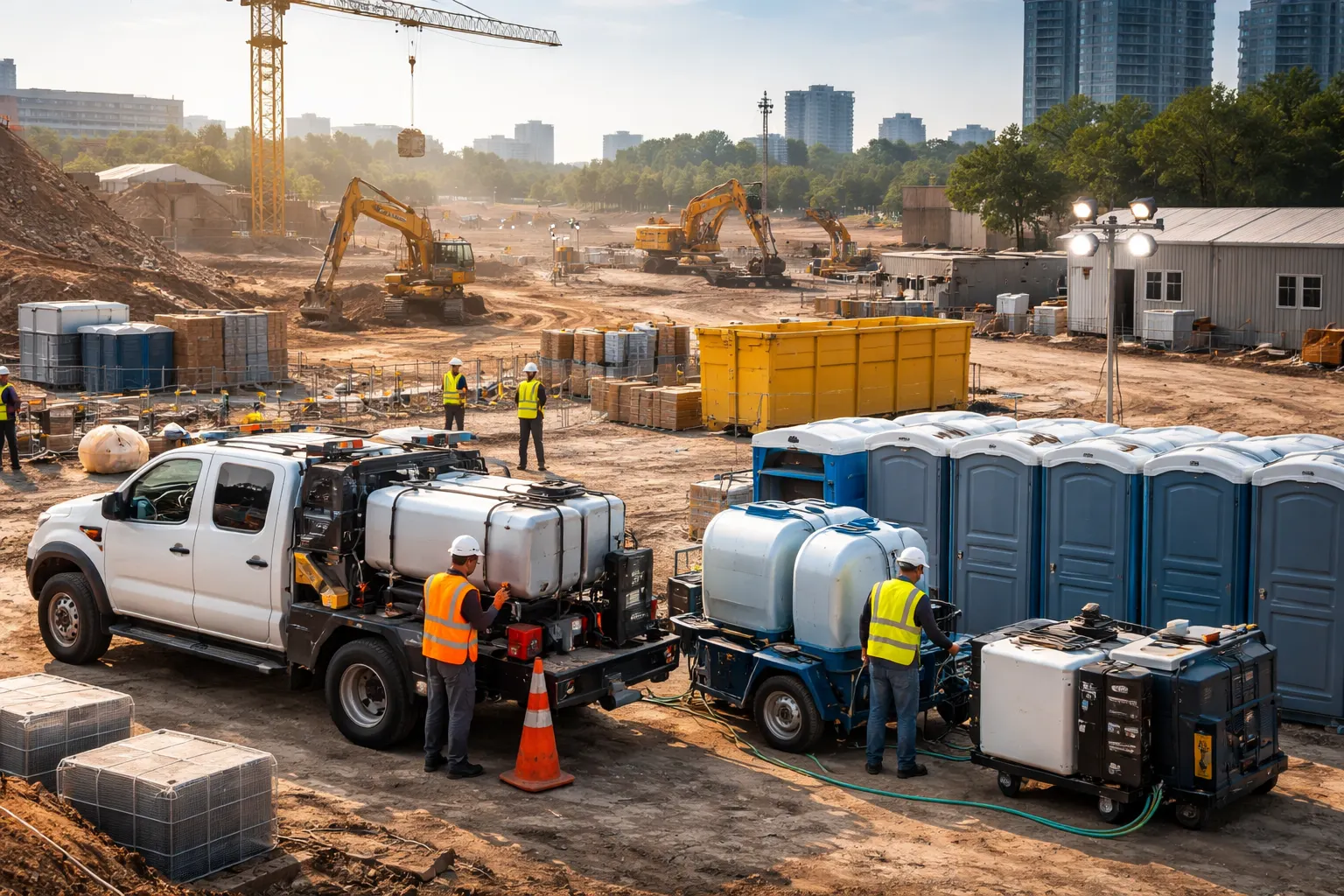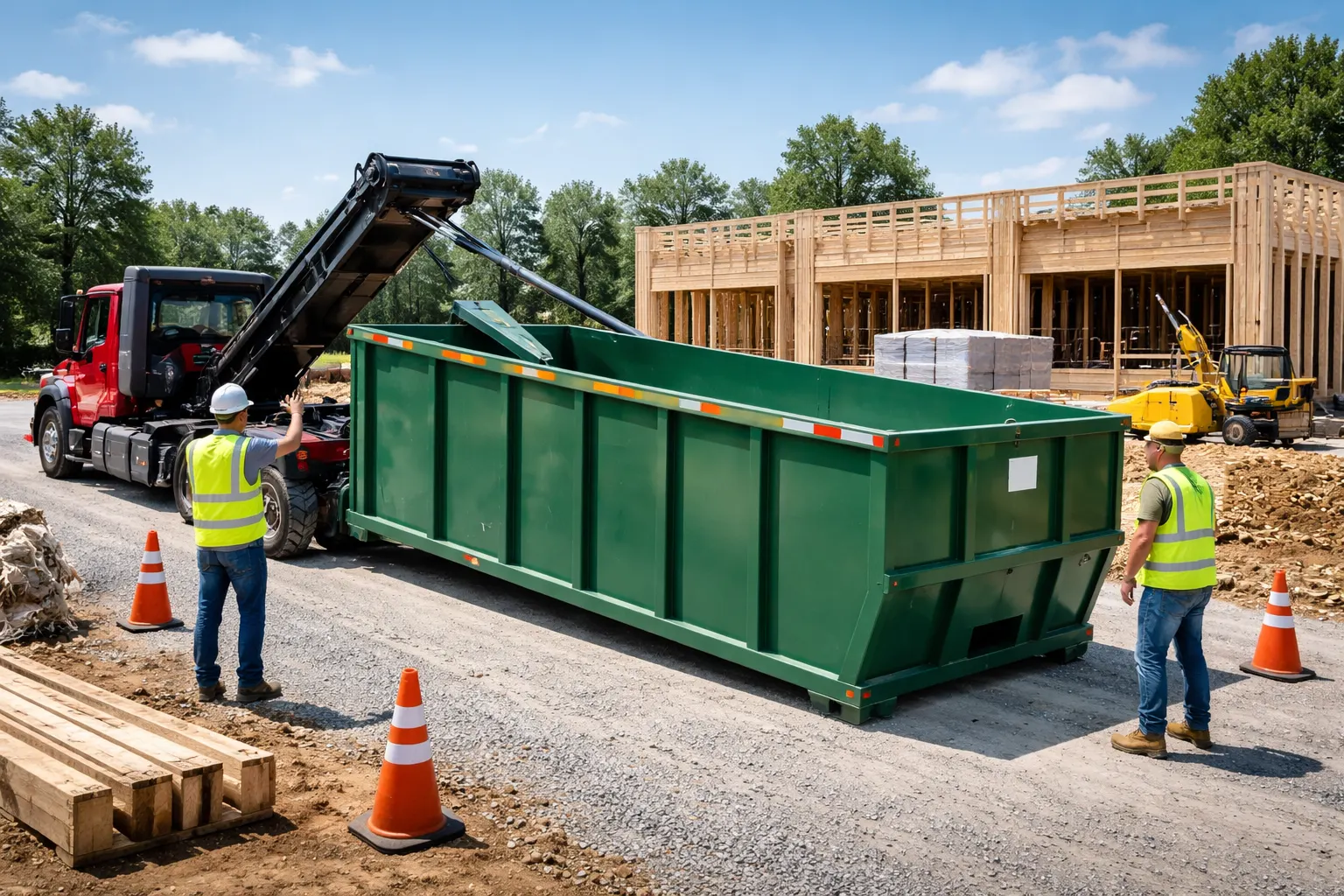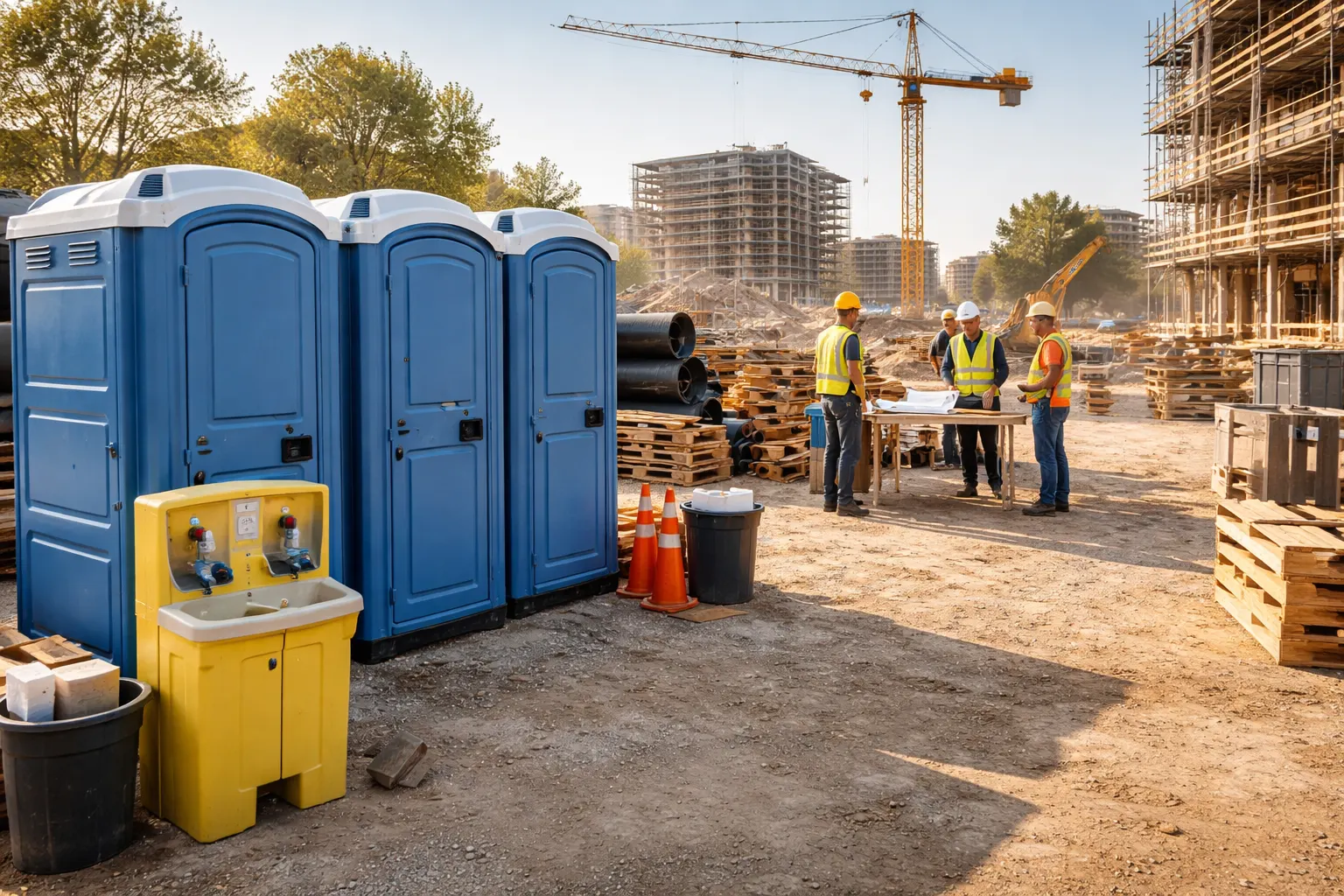In this comprehensive guide, we’ll explore the key factors that impact dumpster rental prices, uncover common hidden fees that could catch you off guard, and provide tips on how to avoid extra charges. By equipping yourself with this knowledge, you can approach your next project with confidence, knowing that you’ve made the most informed decisions possible.
Dumpster rental costs can vary widely based on several factors. These factors not only affect the price but also the overall convenience and suitability of the service for your specific project. Being aware of these can help you choose a service that fits your budget and meets your needs.
Factors Influencing Dumpster Rental Prices
Size of the Dumpster
The size of the dumpster you need will have a significant impact on the cost. Dumpsters are typically measured in cubic yards, and the size you choose should align with the scale of your project. For instance, a 15-yard dumpster is suitable for small to medium projects, such as a minor home renovation or garage cleanout, while larger renovations might require a 30-yard dumpster to accommodate all the waste materials. The larger the dumpster, the higher the cost, not just due to the increased capacity but also because of the logistics involved in transporting and handling larger containers.
Rental Duration
The length of time you need the dumpster will also affect the price. Most rental companies offer a base rate for a week-long rental, which is often sufficient for many projects. However, if you anticipate needing it for a longer period, such as for extensive renovations or when dealing with unpredictable project timelines, expect to pay more. It’s essential to factor in the time for potential delays or extensions in your rental agreement to avoid incurring additional fees later on.
Location
Where you live can significantly influence the price of a dumpster rental. Urban areas may have higher rental costs due to increased demand, higher operational costs, and landfill fees, which can drive up the overall price. Conversely, rural areas might offer cheaper options, but availability could be limited, and the distance from the rental company could also add to the cost. Understanding the local market dynamics can help you anticipate rental costs more accurately.
Type of Waste
The type of waste you’re disposing of can impact costs, as not all waste is treated equally. Hazardous materials or items that require special handling, such as electronics, chemicals, or large appliances, may incur additional fees due to the extra care needed in their disposal. Always check with your rental provider about what is allowed in the dumpster and any additional costs associated with specific types of waste to avoid surprises.
Dump Fees
Dump fees, or tipping fees, are charges levied by landfills based on the weight of the waste disposed of. These fees can vary by location and are often included in your rental price, but it’s crucial to confirm this with your provider. Knowing whether these fees are bundled in the rental cost or charged separately can help you better estimate the total expense of your dumpster rental.
Hidden Fees to Watch Out For
Understanding potential hidden fees can save you from unexpected expenses that can quickly escalate your project’s budget. Awareness and proactive questioning are your best defenses against these surprise charges.
Overweight Charges
Most dumpster rentals come with a weight limit, which is designed to ensure safe transportation and disposal of the waste. Exceeding this limit can result in significant additional charges, as the rental company will need to cover the extra costs associated with transporting and disposing of the overweight materials. Be sure to ask about weight limits and overage fees before renting, and consider the type and quantity of materials you plan to dispose of.
Permit Fees
If you need to place the dumpster on a public road or sidewalk, a permit might be required, which can add to your costs. Permit requirements can vary by city or municipality, and failing to secure the necessary permits can lead to fines or forced removal of the dumpster. Check with your local municipality to understand these requirements and budget for permit fees if needed.
Extra Day Fees
If you find that your project is taking longer than anticipated and you need the dumpster longer than the agreed rental period, you’ll likely incur extra day fees. Planning your project timeline carefully and allowing for some flexibility can help you avoid these charges. If you foresee delays, negotiate a longer rental period upfront to secure a better rate.
Fuel Surcharges
Some companies add fuel surcharges to cover transportation costs, which can fluctuate based on the current price of fuel. These fees can significantly impact the overall cost, especially if your location is far from the rental provider. Ask your provider if fuel surcharges are included in their pricing and how they are calculated to avoid unexpected hikes in your bill.
Tips for Avoiding Extra Charges
Being proactive and informed can help you avoid extra charges when renting a dumpster, ensuring a more seamless and cost-effective experience.
Choose the Right Size
Selecting the appropriate dumpster size for your project is crucial to avoid unnecessary costs. A too-small dumpster may lead to overage charges due to frequent overflows, while an oversized one means paying for unused space. Consulting with the rental company can help determine the best fit for your needs, considering the type of waste and the scope of your project.
Plan Your Rental Duration
Estimate how long you’ll need the dumpster and try to stick to this timeline as closely as possible. If your project is likely to run over due to unforeseen circumstances, negotiate a longer rental period upfront. This proactive approach can help you avoid extra day fees and potentially secure a more favorable rate.
Understand Your Local Regulations
Research local regulations regarding dumpster placement and required permits. Some areas have strict guidelines about where dumpsters can be placed, especially in residential neighborhoods. Ensuring compliance with these regulations can prevent fines and additional costs, allowing your project to proceed without legal interruptions.
Communicate with Your Provider
Open communication with your rental provider is key to a successful rental experience. Discuss all potential fees and clarify any doubts before signing the contract. A reputable company will be transparent about their pricing structure and willing to answer all your questions, providing you with the peace of mind that you won’t encounter unexpected charges.

The Average Cost of Dumpster Rentals
As of 2023, here’s a general idea of what you might expect to pay for dumpster rentals in various sizes, though keep in mind that these are average costs and actual prices can vary depending on your location and specific rental terms:
- 10 Yard Dumpster: $300 – $500
- 15 Yard Dumpster: $350 – $550
- 20 Yard Dumpster: $400 – $600
- 30 Yard Dumpster: $450 – $650
These figures provide a baseline for budgeting but remember that factors like local demand, landfill fees, and specific service offerings can influence the final price. Always request a detailed quote from potential providers to understand what is included in the cost.
Finding Cheap Dumpster Rentals
While it’s tempting to go for the cheapest option, it’s important to weigh cost against service quality and reliability. The least expensive option may not always provide the best value if it results in hidden fees or inadequate service.
Compare Multiple Quotes
Reach out to several dumpster rental companies to compare prices and services. This will give you a better understanding of the market rates and help identify any outliers. Look for any discrepancies in what’s included in the pricing and evaluate each company’s reputation and customer service record.
Ask for Discounts
Some companies offer discounts for first-time customers, seniors, or military personnel. It never hurts to ask if there are any available promotions or if they can offer a better rate to match a competitor’s quote. Taking the time to inquire about potential savings can result in significant cost reductions.
Consider Off-Peak Rentals
If your schedule allows, consider renting during off-peak times when demand is lower. Some companies offer lower rates during slower periods as an incentive to keep their equipment in use. This flexibility can result in substantial savings and a more relaxed rental process.
Conclusion
Renting a dumpster doesn’t have to be a hassle or a financial burden. By understanding the factors that influence dumpster rental prices and being aware of potential hidden fees, you can make informed decisions that suit your project and budget. Taking the time to research and plan your rental can help you avoid extra charges and ensure a smooth, cost-effective waste disposal experience. Remember to communicate with your rental provider and ask questions to clarify any uncertainties. By doing so, you’ll pave the way for a successful renovation or cleanout project, freeing you to focus on what matters most—getting the job done. Happy renovating!






